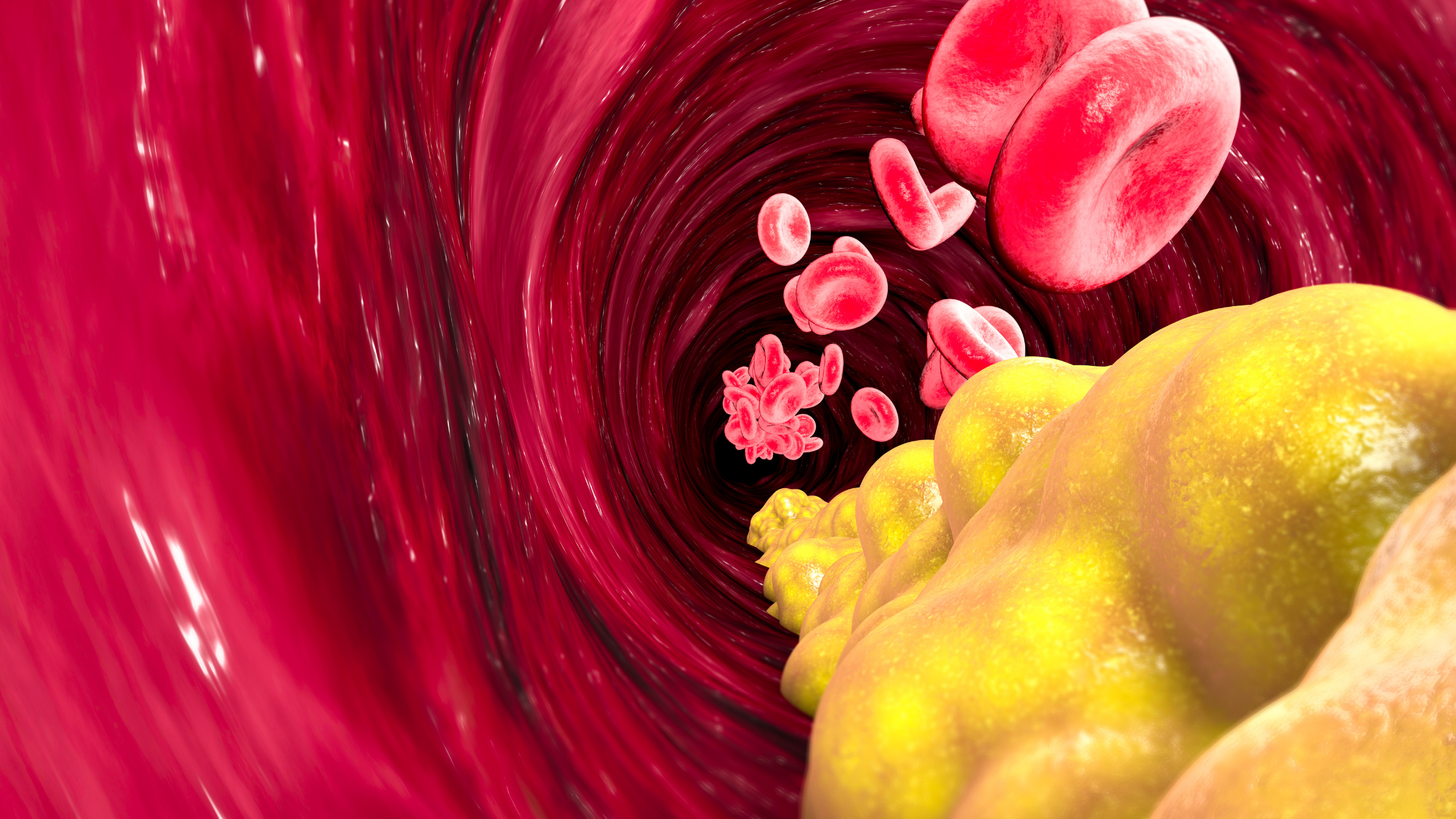10 Signs of Hypothyroidism (Underactive Thyroid)
Written by Tye Medical on Aug 21st 2021
If you’re struggling with several nagging symptoms and have yet to receive a diagnosis, you might have wondered about the signs of hypothyroidism. For some, it’s tough to get answers because most underactive thyroid symptoms are non-specific and occur with many other illnesses—including chronic stress.
The diagnosis is more elusive for senior adults because symptoms like memory loss, fatigue, and constipation are attributed to the normal aging process. Sometimes the condition is even misdiagnosed as a bowel or heart problem. Hypothyroidism in older adults is also more subtle, and it’s not uncommon to have little or no symptoms.
Here are some signs - both well-known and surprising - that something’s amiss with your thyroid. If you have some of these symptoms (or if you’ve never had your thyroid checked), talk to your doctor about testing.
For more information, read our article, Is Your Thyroid Happy? How to Optimize Thyroid Function as You Age.
1. Fatigue
Thyroid-related fatigue is like a system-wide slowdown. The gas pedal is defective, and it doesn’t matter how hard you press. The lack of thyroid hormones means your muscles aren’t getting the fuel they need to function correctly. This leaves you feeling tired, sleepy, exhausted, and unable to exercise. You might even wake up unrefreshed and tired after getting plenty of sleep.
Doctors say that once you’re taking the optimum dose of thyroid medication, the fatigue should subside and disappear. But many thyroid patients still battle with bouts of fatigue even when their numbers are considered “normal.” The reasons for this are highly debated.
2. Weight Gain

Since your thyroid regulates metabolism, one of the signs of hypothyroidism is weight gain. When your metabolism tanks, so does your ability to burn calories, and that’s what piles on those unwanted pounds. You can gain weight even if you’re eating a nutritious diet with a proper calorie intake.
Since your body can’t burn the calories quickly enough, they’re stored as fat. Additionally, you can gain fluid weight because an underactive thyroid triggers fluid retention.
Your weight gain could be thyroid-related if your clothes fit tighter and the scale is inching up despite any changes in your diet or activity level. Hypothyroidism could also be the culprit if you just can’t lose weight even when you’re doing everything right.
3. Depression
Remember that system-wide slowdown we mentioned? It can also affect your mood. You might feel depressed even when everything seems otherwise okay. Some people begin treatment with anti-depressants without realizing they have an underlying thyroid condition.
If you’re experiencing depression symptoms like lack of interest in enjoyable activities, sad feelings, loss of energy, or sleeping too much (or not enough), talk to your doctor about testing your thyroid. It’s especially important if you’re experiencing any of the other signs of hypothyroidism.
4. Pain, Stiffness, or Swelling in Joints
Most people don’t think about their thyroid when they experience joint problems. As the condition progresses to moderate or severe, you might notice joint pain, stiffness, and even swelling. Thyroid hormone is required to develop bodily tissues like the growth of bone and cartilage, which means maintenance and repair don’t happen when needed.
An underactive thyroid gland also triggers excessive protein deposits in your bone tissues, causing issues with your joints. The most common problem areas related to hypothyroidism are the ankle, foot, and hand joints.
5. Elevated Cholesterol

This is one of the lesser-known signs of hypothyroidism, but the two conditions can be related. When you’re not producing enough thyroid hormones, your liver can’t process cholesterol effectively. This means less LDL cholesterol is removed from the blood, elevating your blood cholesterol.
If it seems that your cholesterol jumped up around the time you started experiencing other potential thyroid symptoms, there could be a connection. If you have a history of high cholesterol, it’s worth it to have your thyroid checked to ensure it’s not the culprit.
6. Dry Skin and Hair Loss
Your body rapidly replaces hair and skin cells, requiring regular renewal. This makes them an early predictor of thyroid hormone changes. Without the right level of thyroid hormones, your hair follicles will stop regenerating, causing hair loss.
It affects your skin too. When your thyroid slows hormone production, your outer layer of skin doesn’t regenerate quickly enough. This leaves you with a layer of dead, flaky, dry skin for longer than usual.
7. Muscle Weakness, Aches, Tenderness, or Stiffness
As your metabolism slows from a lack of thyroid hormone, your body can begin to break down muscle tissue for a source of energy (catabolism). This causes feelings of weakness, stiffness, and even aching in your muscles. Over a third of people with an underactive thyroid get muscle cramps because they haven’t engaged in enough activity recently.
It’s common for muscles to feel weak after strenuous activity, but if the weakness is new or increasing, it might be time to check your thyroid hormone levels.
8. Slowed Heart Rate
Thyroid hormones regulate the force and speed of your heart rate, which means that a lack of thyroid hormones slows your heart (bradycardia). On average, the heart rate of hypothyroid patients is ten to twenty beats slower than their usual rate. The real problem is that over time your heart pumps less vigorously and can become weakened.
If you’re not an athlete but carry a low heart rate and have other signs of an underactive thyroid, talk to your doctor about your symptoms and request thyroid testing.
9. Memory Problems and Foggy Brain

Researchers haven’t determined precisely why thyroid hormones impact cognitive functions like memory and concentration. But it’s commonly accepted that poor thyroid function slows your thinking and inhibits your memory. If you seem to process information more slowly, have delayed responses, struggle with concentration, and have trouble remembering things, it could be more than just typical aging.
We can all be forgetful and find concentration difficult from time to time, but when brain fog becomes frequent and part of your everyday life, that’s when you know it’s time to talk with your doctor.
10. Constipation
Many lifestyle factors and conditions can cause constipation, so this isn’t a clear sign that you have a sluggish thyroid. But if you notice other thyroid-related symptoms and battle with constipation despite a proper diet, fluid intake, and exercise, then it’s worth getting your thyroid checked.
Digestion is one of the many bodily functions your thyroid controls, so it’s not surprising that one of the signs of hypothyroidism is a slow-moving colon. The lack of thyroid hormone slows movement through your digestive system, removing more water from your stool and making it more difficult to pass.
What Causes Hypothyroidism?
It’s most common in women and people over the age of 60. But you’re more likely to develop the condition if you:
- Have been pregnant recently
- Have a family history of thyroid problems
- Have had previous thyroid surgery or radiation
- Have other health conditions like Sjogren’s syndrome, certain autoimmune conditions, or Turner syndrome
Hashimoto’s Thyroiditis
This is the most common cause of hypothyroidism in the U. S. It’s an autoimmune disease where your immune system mistakenly attacks an otherwise healthy thyroid. The damage causes decreased thyroid hormone output. Genetics plays a significant role in developing Hashimoto’s, but even so, a life event is often the trigger. Stress, pregnancy, or infection can activate Hashimoto’s if you’re genetically predisposed to the condition.
Other Causes

Certain medications can damage your thyroid, but many factors are involved, and in some cases, it’s only a slight possibility. If you’re taking one of these medications, be sure to discuss your concerns with your doctor since the benefits of continuing the medication can often outweigh the risks of potential thyroid damage.
- Lithium
- Amiodarone (Pacerone, Cordarone)
- Hyperthyroidism medications
- Some cancer medications
Pituitary disorders are a much rarer cause of an underactive thyroid. Sometimes, this tiny gland fails to produce enough TSH (thyroid-stimulating hormone), which keeps your hormone production low. Often a benign tumor on the pituitary gland is responsible.
Symptoms of Myxedema Coma
If left untreated, an underactive thyroid can lead to serious conditions like heart disease and obesity. When your thyroid hormone levels become dangerously low, you can develop signs of an impending myxedema coma, which happens when your body shuts down due to a lack of thyroid function.
Symptoms you can experience before a comatose state include:
- Decreased breathing
- Low blood oxygen levels
- Confusion
- Hypothermia
- High blood carbon dioxide levels
- Decreased blood sodium levels
- Seizures
- Shock
- Coma
In the U. S., it’s rare for anyone to remain undiagnosed or without treatment long enough to have this type of severe reaction. But it’s important to understand that there are real consequences for your body if hypothyroidism isn’t adequately addressed.
Are You Managing Both Hypothyroidism and Urine Leaks?

During middle age, it’s not uncommon for women to deal with both conditions. Stress incontinence might happen around the same time you find out it’s an underactive thyroid inciting your fatigue. While incontinence isn’t one of the signs of hypothyroidism, you might find you develop one condition in proximity to the other.
TYE Medical manufactures incontinence products for everyday life, offering discreet, secure protection that keeps you dry and comfortable no matter where your day takes you.
Try our light incontinence pads for occasional or mild leaks. And for those times you need moderate to heavy protection, we have Protective Underwear designed to work with our two-piece system.
Not sure what you need? Try using our free Product Finder tool.


